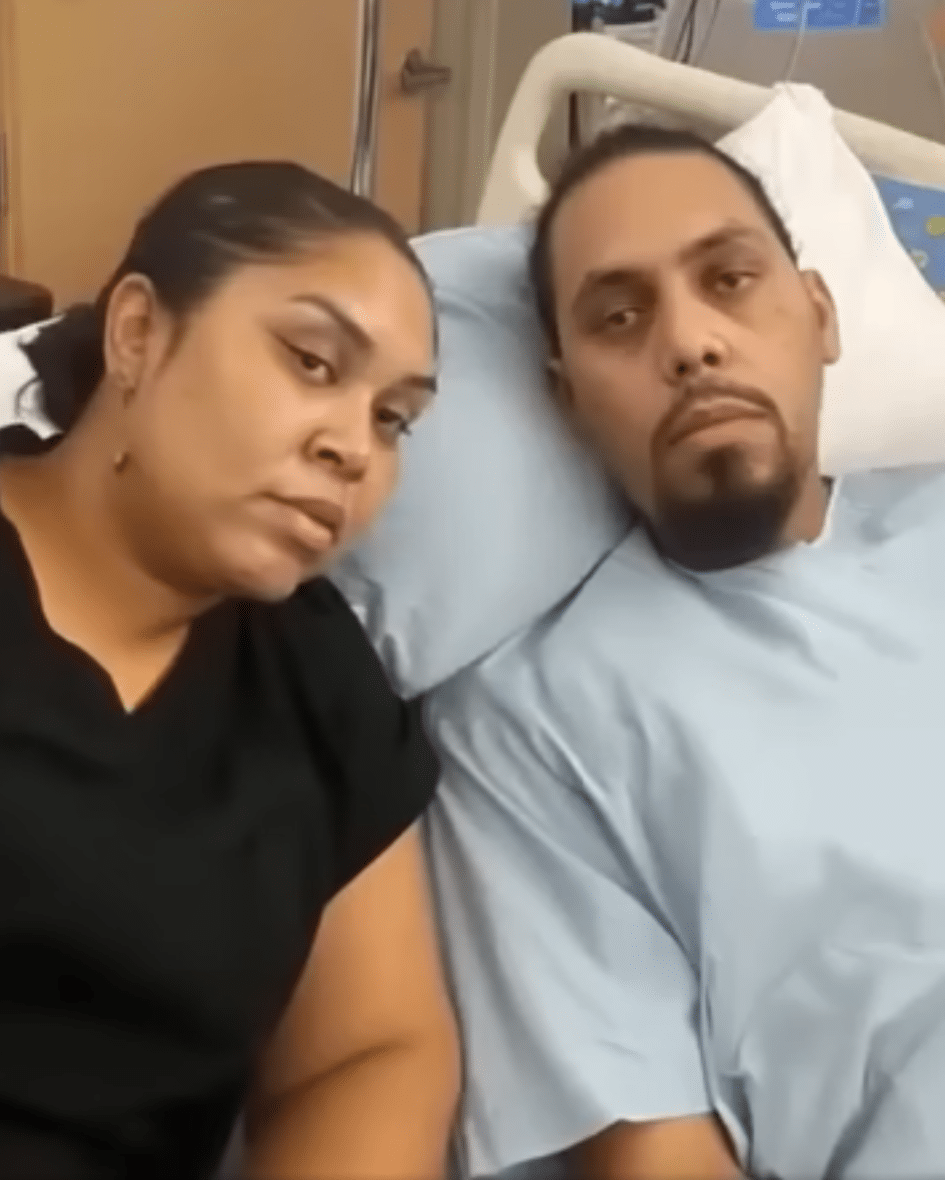Diana sat frozen in the sterile hospital hallway, her hands trembling as the doctor delivered the words that would unravel her world:
“I’m sorry. Eric has only a few weeks left. The cancer is aggressive.”
Her husband of fifteen years—her partner, her constant—was dying. Or so she thought.
As she tried to absorb the grief, a nurse quietly approached, eyes darting down the corridor.
“Put a hidden camera in his room,” she whispered. “He’s not dying.”
And just like that, the floor beneath Diana’s sorrow cracked open.

Confused. Suspicious. Terrified.
She hesitated—then did it.
That evening, she tucked a small camera among the flower arrangement by Eric’s bedside. The next morning, she watched the footage.
At exactly 9:03 p.m., a woman in a sleek black coat entered. Eric—who had been frail, barely able to lift his head just hours before—sprang from the bed effortlessly and kissed her like a man very much alive.
They laughed. Whispered.
The woman handed him a stack of papers. Eric slid them under the mattress.
Diana’s hands clenched the laptop. Her heartbreak burned into rage.
The next night, she followed the woman—Victoria—after she left the hospital. At a quiet café across town, she watched from behind tinted glass as Victoria met with Eric’s lawyer.
Words drifted through the open window:
“Once the policy pays out, we’re gone. Clean break. The Caribbean, like we planned.”
That was enough.
The next day, Diana returned to the hospital. Calm. Composed.
She connected her laptop to the room’s TV.
Play.
The video began. Eric’s face drained of color.
When hospital security entered moments later, neither he nor Victoria could deny what the footage revealed. Fraud. Conspiracy. A life insurance scheme built on lies.
Eric had never been sick. Just sickeningly deceitful.
The doctors were stunned. Charges were filed. Eric and Victoria were arrested before they could take another step outside the hospital walls.
The trial was brutal—but Diana stood tall. She faced them both. Not as a victim, but as a survivor.
Months passed. Therapy helped. Healing followed.
And then, one day, she saw the nurse again—just once, in passing. The woman paused, gave a small nod, and said:
“Sometimes the worst diseases… are the lies we’re told by those we love.”
Then she was gone.
As the sun dipped behind the hospital where her nightmare had begun, Diana didn’t cry.
She smiled.
She was free.

